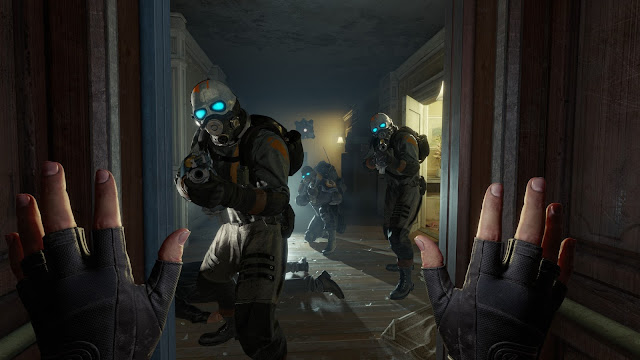In the nearly four years since the Oculus Rift and HTC Vive hit retail shelves, VR has gone from being the most exciting new computing medium around -- something that could be as transformational as the internet itself -- to a niche accessory for gamers with too much money. New headsets have come and gone, cheap mobile VR was briefly popular (before going extinct) and standalone virtual reality devices have finally arrived. It'd be wrong to say there's been no progress in the world of VR, but it still feels as if we're waiting for it to truly take off as a medium.
Where's the killer app? Where's the affordable hardware that everyone can buy (that doesn't deliver a dumbed down experience)? How, exactly, will developers make money without releasing yet another zombie game? There's still so much left up in the air for a medium that arrived amid a torrent of hype.
Looking ahead to 2020, though, there are signs that things could shape up. Valve's upcoming Half-Life: Alyx is exactly the sort of VR exclusive that could push gamers to pick up a headset. There's already an uproar among Half-Life fans about the game being available only in VR, with no way to play it on a traditional monitor. Clearly, Valve is leaving money on the table by doing that, but it's also a sign that it's dedicated to the new medium. And if it's a success, Half-Life: Alyx will also prove to other developers that it's worth taking a risk on VR.
It's hard not to feel as if the virtual-reality market is losing steam. When the Rift and Vive arrived in 2016, they ended up being overshadowed by AR, namely Microsoft's HoloLens and Pokémon Go. Fast-forward to 2017, and Oculus was already talking about a world beyond VR headsets, where AR goggles could also block out the real world to deliver similarly focused immersive experiences.
Today, VR headsets are, for the most part, still very expensive and require additional expensive hardware, like a gaming PC or a PlayStation 4. The Oculus Quest, though, is a glimmer of hope. As a standalone VR headset, it doesn't need any extra hardware. And since all of its sensors are built in, you don't have to worry about setting up additional equipment in a dedicated VR room. You can just pick it up and move it to any open space to dive into Superhot.
While the Quest was clearly the most exciting VR device of 2019 (the $1,000 Valve Index is also cool but only meant for hardcore enthusiasts), it's already looking like a killer product for 2020. Oculus Link, which is currently available as a beta feature, will let you use the Quest as a standard PC VR headset. That means if you've got a gaming PC around, all you have to do is plug it in to play high-end VR. Oculus is also testing out hand tracking, which adds an entirely new level of immersion to the Quest. Up until now, that was a feature that required an additional accessory strapped to a VR headset.


Post a Comment